To avoid saying that democracy has reached a point where “excess has led to ridicule,” what else can we conclude?
This is truly the misfortune of the voters!
Currently, the BJP-led Mahayuti government in power in Maharashtra holds a majority in both the Legislative Assembly and the Legislative Council. However, despite this, last week, the Assembly faced uproar from the opposition parties on two occasions due to the lack of quorum (minimum required attendance) of ministers and ruling party members. This led to the government being criticized for halting the proceedings due to the absence of quorum. Importantly, this is the first budget session of this government, and most of the members are new. For 78 members, this is their first time in the Legislative Assembly. However, it seems they did not feel the need to stay present in the House until the end, learn or observe the proceedings, or participate in them. This can only be termed as unfortunate for the voters from the constituencies who elected these representatives.
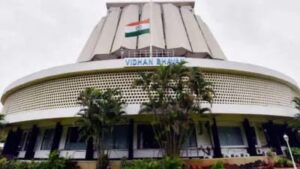
It seems that the newly elected members have yet to fully grasp the ‘technique’ of raising a pertinent issue in the Assembly, obtaining direct video clips of the proceedings from the Secretariat, and sending them through their personal assistants to WhatsApp groups in their constituencies with a message like, “See how our MLA is raising issues of the taluka in the Assembly!” This creates a (virtual?) buzz. However, many members who have attended the House two or three times seize the opportunity to speak at least once during the morning or throughout the day, ensuring that the ‘clippings’ reach their voters, thereby maintaining a connection with them. This has been observed. Anyway, it must be said that the first budget session of the Mahayuti government in its initial hundred days has not been particularly advantageous for the ruling parties.
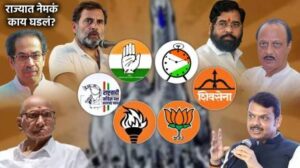
The primary reason for the significance of this session is that one minister from this government faced the embarrassment of having to resign, while another narrowly avoided resignation due to the court’s intervention, which questioned the need for unnecessary by-elections. Currently, two BJP ministers named ‘Jaykumar’ are under scrutiny. One is accused of encroaching on the President’s land, while the other, despite being acquitted in a case involving indecent behavior towards a woman, is said to have faced political ostracism.
This session, which appeared to last about four weeks, actually involved only sixteen days of work. It gained attention for unusual reasons. The session, which spends crores of rupees to address issues affecting farmers, unemployed youth, students, and the general public, provides allowances and facilities to representatives for their social service. However, as always, the public that elected them saw little to no benefit. This time, despite minimal activity from the relatively insignificant opposition, they managed to maintain an upper hand.
Even within the ruling party, members like Sudhir Mungantiwar, Suresh Dhas, Babanrao Lonikar, Chhagan Bhujbal, and Nilesh Rane expressed dissatisfaction with the government’s disappointing performance. On the opposition side, members like Bhaskar Jadhav, Rohit Pawar, Rohit Patil, Jayant Patil, Nitin Raut, Nana Patole, Vijay Wadettiwar, Siddharth Kharat, Kailash Patil, and the sole woman member, Dr. Gaikwad, made commendable efforts to pinpoint the government’s shortcomings and push for public issues.
The first budget session of the Mahayuti government within its initial hundred days raised doubts about whether it would remain merely a symbolic exercise due to a lack of substantial financial allocations. However, Ajit Pawar, with his experience of presenting budgets eleven times, skillfully presented a budget that addressed the government’s fiscal deficit, buying time for the administration. This is how the session can be summarized.
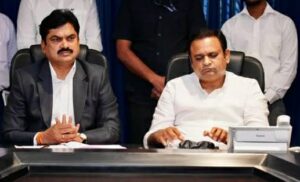
*Discontent with the Chairperson – Speaker?*
Rahul Narvekar, the Speaker of the Legislative Assembly, has been elected as the Speaker for the second time during his second term as an MLA. However, his way of conducting proceedings, which previously drew criticism from opposition members, has now left even the ruling party members ‘perplexed’. This is worth mentioning because senior ruling party member and former Finance Minister Sudhir Mungantiwar has publicly criticized the Speaker’s functioning at least four to five times during this session. Whether it was his anxious question about whether the Assembly is a legislative house or a shooting range, his poetic expression of being “not angry but perplexed,” or the issue of forming committees for members’ work, Sudhir Mungantiwar’s statements about the government and the functioning of the Assembly have made headlines each time. However, the exact opposite effect of his remarks has also been observed.
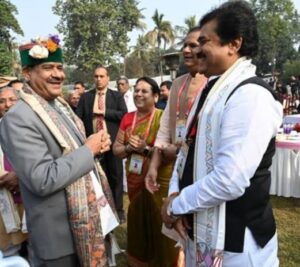
*The Same Story Now with the Newly Elected Chairman Ram Shinde in the Upper House*
The same scenario is now being observed in the functioning of the newly elected Chairman of the Upper House, Ram Shinde, and the Deputy Chairman. Opposition members, including opposition leaders, have repeatedly raised objections, accusing them of not allowing them to speak and acting as authoritarian figures.
Currently, only six states in India have the Legislative Council system. Maharashtra’s Legislative Council recently celebrated its centenary. It is the first Legislative Council in the country to lay the foundation of democratic governance. However, the current session has seen a lack of dignified functioning befitting this legacy. Ambadas Danve, the leader of the Shiv Sena (Thackeray faction), currently holds the position of Leader of the Opposition in this House. In the past, stalwarts like Gopal Krishna Gokhale and Lokmanya Tilak held this position and set exemplary standards for what an opposition leader should be during the British era, leaving behind a legacy of principled opposition.
This Upper House, often referred to as the ‘House of Lords’ in the context of the Mother Parliament, holds significant importance. Dr. Babasaheb Ambedkar, while adopting the bicameral parliamentary system with the Rajya Sabha and Lok Sabha, praised the concept of the Second Chamber in democracy in 1949. On the occasion of the centenary celebration of the Maharashtra Legislative Council, President Draupadi Murmu, in her address to the joint session of the Maharashtra Legislature on September 4, 2024, highlighted the importance and necessity of the Upper House. The published volume on this occasion included excerpts from Dr. Babasaheb Ambedkar’s speech in the Constituent Assembly, emphasizing the significance of this House.
Interestingly, in the past, BJP members like Sudhir Mungantiwar and Anil Gote have recommended the abolition of this House in the Legislative Assembly. Some states have passed resolutions to abolish their Councils to save costs. The Constitution provides for the abolition of the Upper House if a resolution is passed by a two-thirds majority in the Legislative Assembly and Parliament. For instance, the Upper House in Kashmir was abolished in this manner.
Given the current standards and functioning of the House, if Maharashtra wishes to avoid such a fate, its representatives will need to act with greater responsibility.
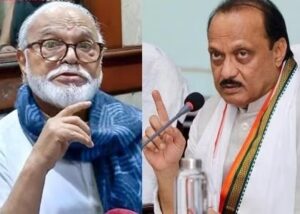
*The Political Convenience of ‘Stop-Gap Arrangements’?*
Currently, political parties find it convenient to use the Legislative Council as a ‘stop-gap arrangement’ for those who cannot be accommodated in the Legislative Assembly due to political constraints or for those whose inclusion benefits the party but cannot be directly elected. This has led to a practice where individuals who were denied tickets for the Assembly, those with limited chances of winning public elections, or those defeated in the Assembly elections are given membership in the Council (through the backdoor). This flawed practice has unfortunately become common.
In this historically significant House, there has been a rise in street-style quarrels, personal character assassinations, and accusations and counter-accusations between ruling and opposition members. If the prestige, dignity, and importance of this House are to be preserved, both ruling and opposition members must act with restraint, respect, and diligence. It is commendable that the Chairman and the Chief Minister have taken positive steps to address some of these wrongdoings.
However, a new ‘political ailment’ has emerged, where leaders are increasingly discussing House matters in detail with the media outside the House. In reality, the decorum and legal protections available while speaking inside the House are often disregarded when the same issues are discussed outside. Members and political leaders must remain aware of this. Speaking about House proceedings differently outside the House violates its privileges, a fact that current representatives seem to overlook. The pursuit of publicity and TRP ratings has led to excessive statements being made within the legislative premises, which is unfortunate for the democratic system of the state.
Has democracy reached a point where ‘excess has led to ridicule’? Should we not say so? What else can we conclude?
– *Kishor Apte*
(Author and Political Analyst)
